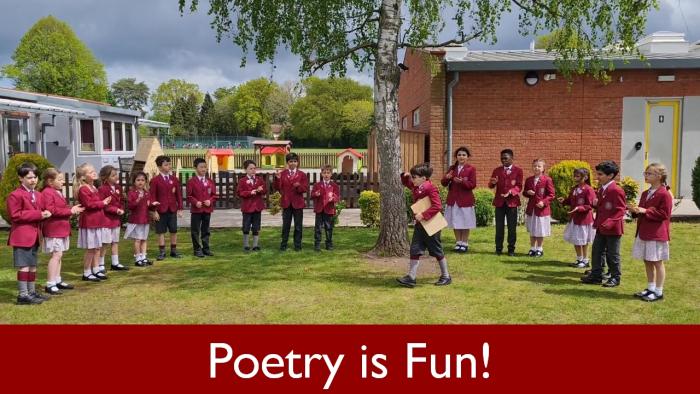
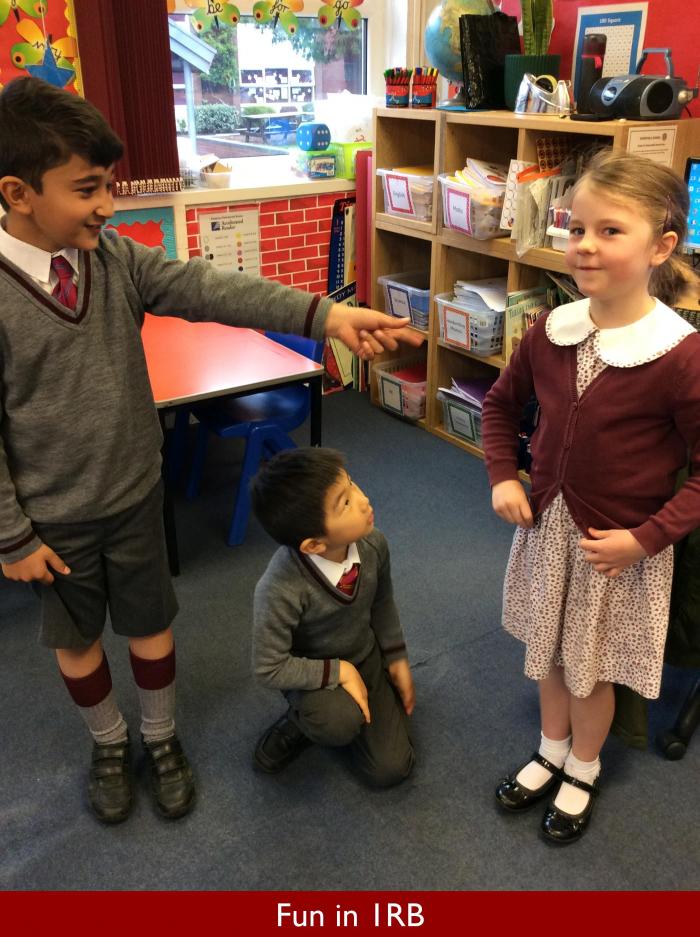
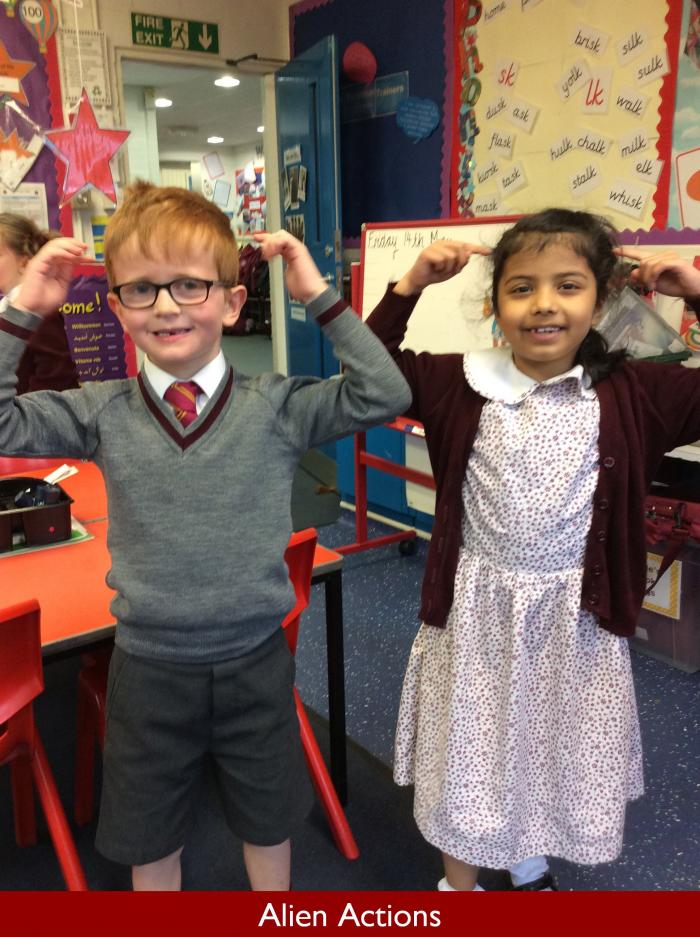
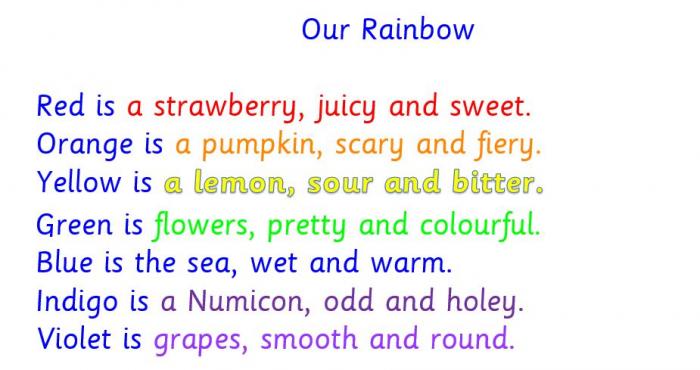
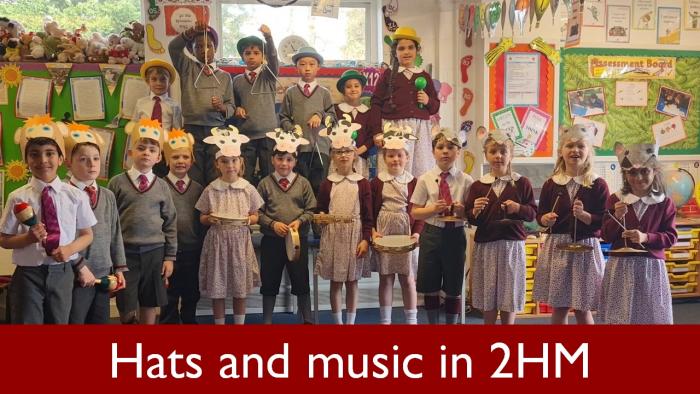
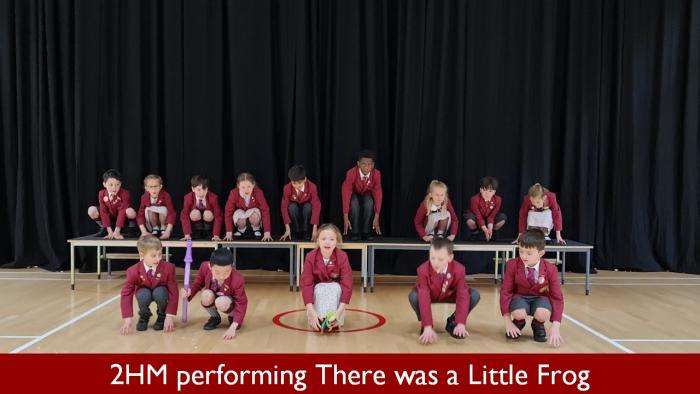
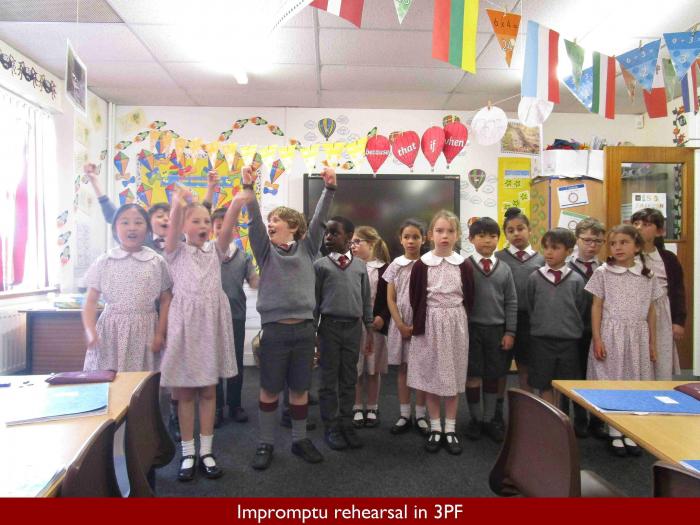
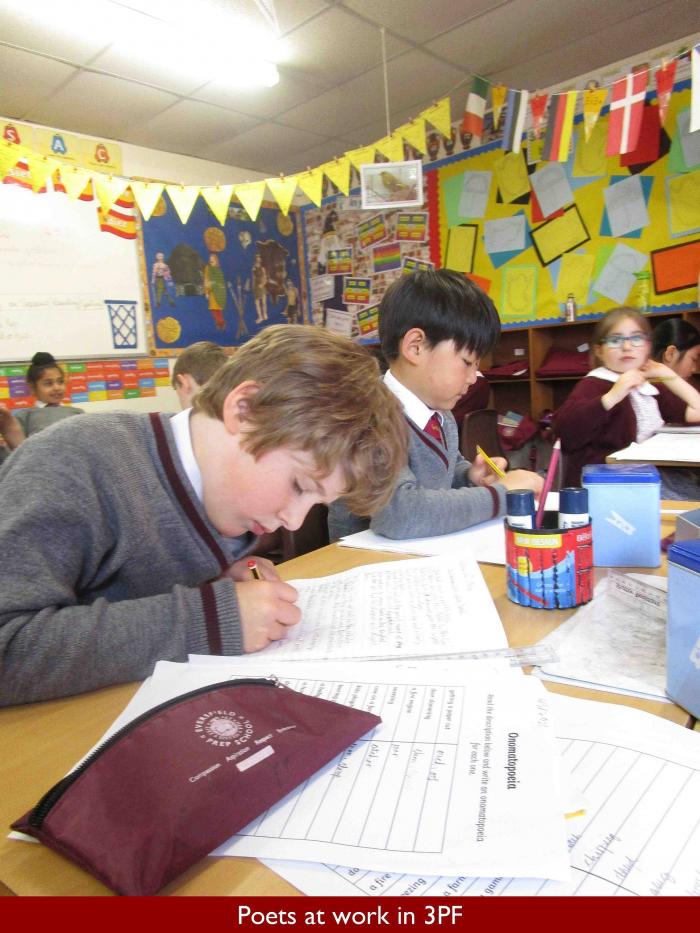
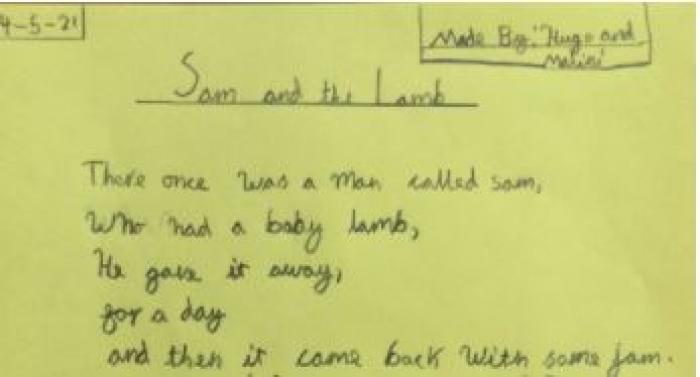
Poetry is Fun
“That was so much fun!” These are some of the most gratifying words a teacher can hope to hear at the end of any lesson and, happily, they rang out frequently in Middle School last week as the children enjoyed their annual Poetry Week. Our special week has not been exactly as we would have liked it this year in that we were unable to invite parents to a grand poetry recital, as we have done in previous years. However, rest assured you were all with us in spirit and, to help you enjoy the event, Mr Newman kindly videoed the performances for each class and shared them on Seesaw. Having watched all the videos myself, I can tell you that they are simply not to be missed.
We came up with the idea of Poetry Week a few years ago in order to raise the profile of poetry in school and to give our pupils an additional opportunity to perform in front of others. Poetry has its own distinct set of rules and conventions, but it is surprising how many of the skills we learnt during the week are transferable to other aspects of English. 2TS, for instance, discovered that focusing on rhyme helps with spelling, particularly the spelling of those notoriously tricky vowel phonemes.
At the start of the week, each class began working on a poem to learn and recite. Most classes split their recital into parts. The children dreamed up actions and found props to enhance their performance. 2HM pupils worked on Spike Milligan’s utterly wacky On The Ning Nang Nong, which they succeeded in making even more anarchic with a rousing percussion accompaniment, whilst 2TS offered us Roger McGough’s intriguing poem The Sound Collector. For extra authenticity, Mr Solly even recruited Jeevan as a real life sound collector, who went amongst his classmates with a large briefcase to store the sounds he came across.
In 1RG, the focus was on onomatopoeia with a range of scary dinosaur sounds in a poem called Roar! To prove that you can find poems in the most unexpected places, Mrs Burnett came up with the rousing Alien! Alien! Full of repetition and with lots of scope for actions, the poem was sourced thanks to Google from a resource bank at the Cape May County Library in New Jersey, U.S.A.
Over in the Denney, Mrs Hynes was spoilt for choice after looking through a range of poetry anthologies. Only at the very last minute did she settle on Brian Patten’s poem The Trouble with My Brother, all about a sibling with very peculiar eating habits. I think she made an excellent choice because the children loved the poem’s ‘nibble nibble, munch munch’ refrain at the end of every verse. In 3PF, three groups were needed to perform The Three Headed Dog by Clare Bevan, all about a rather fearsome creature by the name of Cerberus, which reminded everyone of the Greek myths they studied in the Michaelmas Term.
The second task for each class was to compose a poem of their own. As the theme for the week was ‘Poetry is Fun’, that gave the teachers plenty of scope to find an inspirational starting point. Sticking with her theme of outer space, Mrs Burnett chose Blast Off, a countdown poem which I had the chance to gain a sneak preview of through my classroom window during an impromptu rehearsal in the playground. Even by Wednesday afternoon, it was word perfect! For 2HM, the focus was on counting syllables and devising rhyming couplets to produce a bespoke poem called Down at Eversfield School, which they performed brilliantly on the grass outside the JSB.
In 1RG, Mrs Gilmartin asked the children to picture a rainbow. This is a very good illustration of how poetry is essentially art made with words. She asked them to think of orange. They gave her ‘Orange is a pumpkin, scary and fiery.’ When she asked for yellow, the response was ‘Yellow is a lemon, sour and bitter.’ Here again we have an example of an easily transferable skill. A good writer needs to be able to visualise an image and to make word associations to help bring a scene alive for a reader, whether they are writing poetry or prose. Meanwhile, in 2TS, the children transformed a poem called Animal Menagerie by Roger Stevens into their own creation, Mr Magoo’s Amazing Zoo. The watchword here is alliteration, which gave each line of the poem impact and originality. There are no ordinary animals in this zoo. Instead, we have ‘Ten tapping tigers trapping terrible tortoises’, to say nothing of ‘Families of ferocious frogs flying through the flies’ and ‘Plenty of playful pandas playing ping pong perfectly.’ Everyone agreed that they would remember alliteration and would try to use it in their story writing when they have chance.
In Form 3, Mrs Hynes opted for limericks, a traditional verse form popularised by Edward Lear. The children worked in pairs to count syllables and develop the rhyme and rhythm needed for their verse. To give you a flavour of what they did, this is what Leo and Dean composed:
‘There was an old man called Dan
Who looked very cool when he ran.
He bumped into a tree
And said I am three,
Then drank the whole soda can.
The children also worked in pairs in 3PF, composing verse in the style of James Carter’s Happy Poem.
In a week devoted to poetry, some classes managed bonus activities. 2HM learnt an extra poem called There was a Little Frog. 3AH enjoyed sharing the poems in the book Jack brought from home. In 3PF, the pupils marvelled at the beauty of the words in John Masefield’s Cargoes and later had fun composing an anthropomorphic poem. Anthropomorphism is a very long and hard to say word, but it is in fact a style of writing found in all kinds of children’s fiction, especially fairy tales, in which an animal or inanimate object is given human characteristics. Having listened to a heartfelt plea for kindness and respect in A Message from your Rubber, the children were invited to consider the hopes and fears of the humble classroom pencil. In Oliver’s poem, the unfortunate pencil fell inside the radiator:
‘So here I am with all the dust,
Stuck here red hot for twenty years
As red as a tomato and never cool.’
I am quite confident that no one will ever throw a pencil in 3PF again, and they will think twice before they get out the sharpener unnecessarily. The children loved this task but I have the feeling that, above all, they were just grateful that I didn’t ask them to make their poem rhyme.